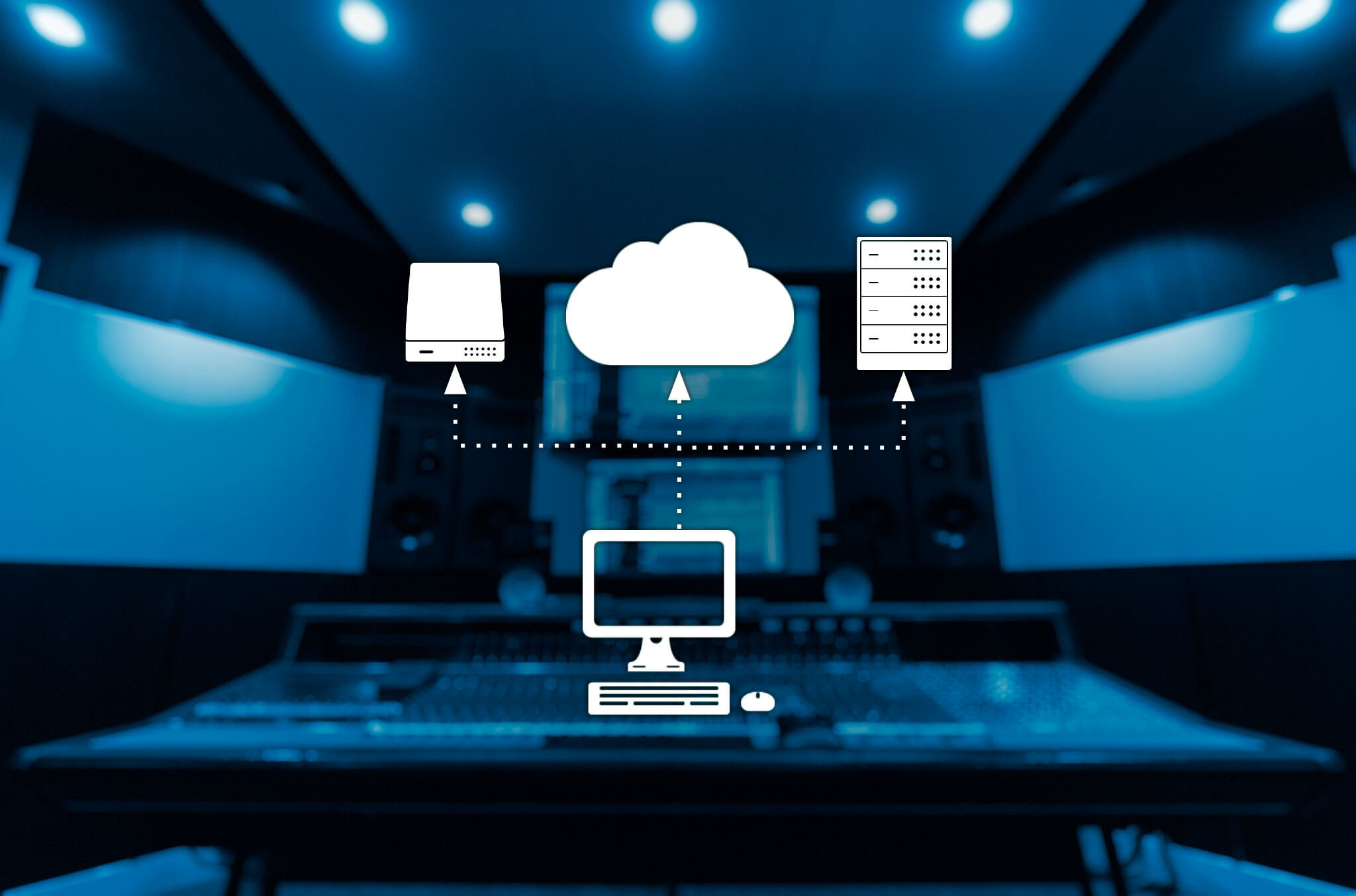Written by Harvey O’Sullivan
A request we frequently receive at the studios is:
“Do you have a copy of my files? My laptop/hard drive died and I don’t have them anymore”.
With the rise of digital audio, computer and cloud-based data storage, we thought it may be helpful to provide some tips on good practice to keep your files safe and accessible for the long term.
An enormous amount of data moves through the studios on a yearly basis, particularly in a large-format facility like Studios 301. Additionally, the future of audio archival is digital. Physical media is deteriorating and playback machines are becoming more difficult to find and maintain (find out more about Deadline 2025).
It may be a tedious chore, but it is essential you back-up your important files. If the session files for your ground-breaking / genre-bending new music are only stored in one place, i.e. on your laptop, then you’re one tech disaster away from heartbreak. Hard drives have a relatively short lifespan; you should not expect them to last longer than 3 to 5 years, and sometimes much shorter than that. I’ve had drives fail that were mere months old. If you have your files only on the one hard drive that gives out, it can cost many thousands of dollars with a specialist to try and retrieve them.
A great and easy-to-remember concept for this is the “3-2-1 backup rule”, which you can read more about here. To surmise,
- You want three copies of your files
- On two different storage types
- And one offsite backup
A practical example of this is to keep any important session files neatly organised on your computer, have a copy on an external hard drive, burn them to a DVD, and another copy in the cloud. That way you have more than covered the 3-2-1 rule and nothing short of armageddon will keep you from your files.
The next question then is, what should you keep? Well technically you can probably keep everything related to a session. Space is cheap these days so it may be worth holding onto all your files, i.e. the out-takes, the demos, the mixes, the masters. But then it’s also worthwhile considering future proofing your sessions. In 15+ years time it’s highly unlikely that you will be running the same system you are today, and if you try to open the project session you may find it incompatible, as plugins won’t load etc. It’s therefore good practice to render out the multitracks of your mixes into two sets of 32bit floating point WAV files, one set with plugins on and one set with them off, so if in the distant future you want to remix the tracks, you can recall all the elements with minimal fuss.
Key Takeaways:
- Hard drives WILL fail so if you only have a single copy of important files you are setting yourself up for heartbreak.
- Set aside an afternoon every few months to make sure your backups are up to date and remember to test them.
- Be kind to your future self and assume your current projects won’t be compatible in the future so render as much as you can into WAV format.
